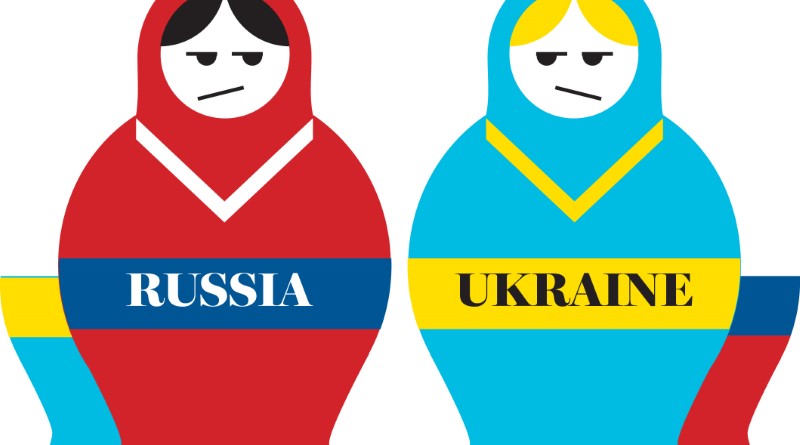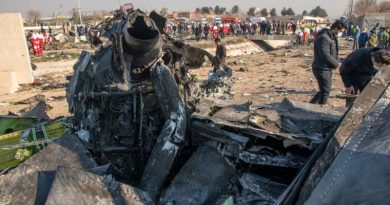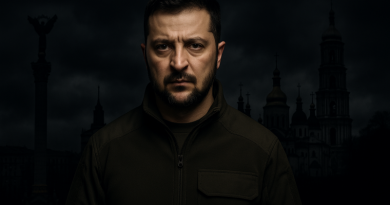Ukraine’s Language Law – A Definite Analysis
It’s been something of a mystery identifying who is right and who is wrong when it comes to interpreting the language laws in Ukraine. Like with every international topic, there’s more sides to the story than merely “the narrative”.
When asking the Russian side, their answer would be that Russian is disallowed; that it can’t be used anymore in civil life. According to them, all official communication in the country needs to be done in the State Language, of which there is only one: Ukrainian. In other words, should this version be correct, Russian – spoken by roughly 30% of Ukrainian citizens when not taking into account possible new realities, can’t be used for public administration, electoral process, education, science, culture, media, economic and social life, health and care institutions, and activities of political parties (including more according to Wikipedia).
When asking pro-Ukrainians, Westerners, served by an incessant support for the country by its mainstream media, you would hear that the Russian side is not based in any factual understanding of the Ukrainian language law and that, what the Russian position rehearses, is “Russian disinformation” and propaganda.
So. Who’s right? Who’s wrong? Let’s find out…
Applicable Laws
While I get to why I am stating “plural” as obnoxiously as I did, clearly, the most important law is the ЗАКОН УКРАЇНИ – Про забезпечення функціонування української мови як державної or LAW OF UKRAINE – On Supporting the Functioning of the Ukrainian Language as the State Language. I don’t speak Ukrainian, but luckily the judicial texts’ translation into English – but not Russian – is readily available right here from the official government’s website. I’ll refer to it as the “Language Law”, but you saw that coming, right?
The above law came in effect under Zelensky’s watch on July 16th, 2019 and has been revised 11 times since. The current law replaced a previous, more lenient 2012 one which was deemed “unconstitutional” on February 28th, 2018 after four years of review (since October 2014 – post-Maidan and post-annexation / reunification of Crimea) by Ukraine’s Constitutional Court. The former law was more lenient in the sense that it allowed more “Russian”[1]. The law is signed by Pietro Poroshenko as it was ratified on April 25th, 2019, short of a month before Volodymir Zelensky assumed office on May 20th, 2019.
The second law that I need in order to explain the below is the ЗАКОН УКРАЇНИ – Про корінні народи України or LAW OF UKRAINE – About indigenous peoples of Ukraine, again, perfectly translated in English but not in Russian and found here. This one I’ll address as the “Native Law” below. It was ratified on July 1st, 2019 and came into effect mere three weeks later on July 23rd, 2019: a meagre six days after the language law and this one – according to the official Verkhovna Rada website – obviously was signed by Volodymir Zelensky.
Let’s Dig In?
When printed, the Language Law adds up to 29 pages of legislative text; the Native Law takes four. The Language Law then adds up to quite the body of text. In the last paragraph of its preamble it notes that it is “taking into consideration the Opinion of the European Commission for Democracy through Law” which entails that a “balanced policy in the sphere of language requires safeguards […] as an instrument of social consolidation”. The part omitted by me reads “for preservation of the State language”, purely and solely “Ukrainian” in other words – but heed the footnote.
Now let’s look at some of its Sections, Articles and Paragraphs…
Section 1 – Preambles
Article 1 and 2 are clear that only and solely Ukrainian is considered the State (official) language (sic). It shall not be “deliberately distorted”, it implies “mandatory use throughout Ukraine”, is considered “the only language of interethnic communication” for the “protection of human rights for every Ukrainian citizen”, shall be used in “spheres of public life” but does not apply to “the sphere of private life”. In other words, you can talk any language (including Russian) in your own home, or in a bar, of course. It explicitly makes the exception for the “Crimean Tatar language and other languages of indigenous peoples and national minorities in Ukraine”, yet their use is still “determined by this Law”.
Article 3 explains the reasoning behind Ukrainian being solely declared as State language as it is needed for: “strengthening State unity and territorial integrity of Ukraine, its independent statehood and national security”; the law is needed because it is a “state-building factor”.
Section 2 – State Language
Should you have been raised in another language but Ukrainian (30% of its citizens is), you’re in for trouble as “each citizen of Ukraine is required to be proficient in the State Language”. Luckily Ukraine “provides each citizen of Ukraine with opportunities for mastering the State language through a system of preschool, secondary general, extramural, occupational (vocational), professional pre-higher, higher education, and adult education institutions”.
It is logical that any which individual wanting Ukrainian citizenship “shall be required to attest an appropriate proficiency in the State language”. What is remarkable however are the exceptions being defined, namely: “Persons who have rendered outstanding services to Ukraine, […] do military service in the Armed Forces of Ukraine […] shall be entitled to acquire Ukrainian citizenship without attesting their level of proficiency in the State language.”
Lastly, if your given name is written in another language but the State language as a citizen of Ukraine, it “shall be issued
[transcribed according to Article 8 and Article 40]
in the State language”. Their goes your birth name if it is anything else but in Ukrainian.
Section 3 and Section 4 – Use of the State Language
I am not sure if I already rehearsed so, but 30% of Ukrainians are native Russians yet, if you want to represent your people politically, the only possibility is to do so in the State language. The list in Article 9 is lengthy but it also includes benign positions as “civil servants”, “employees […]”, “officers”, “prosecutors”, “lawyers”, “notaries”, “medical personnel”.
Furthermore, the State language shall be solely used as “working language” in official, government steered “enterprises, institutions and organisations”, also in “regulations, record keeping and document management”, in “legal proceedings”, in the “Armed Forces”, in “law enforcement agencies”, “when crossing the border of Ukraine”, in “elections and referendums” and “when concluding international treaties”. Although, in the latter case, the “language of the other party” may also be used.
Section 5 – The State Language in Education
If the inability to represent yourself politically – and more! – in your own, native language [Russian being spoken by around 30%] is bad, then Section 5 seems to drive the nail down even more: “The State language in the field of labour relations” stipulates that the only language is the State language “except when […] serving customers who are foreigners or stateless”. Now imagine you are shopping for any which thing in a predominantly Russian-speaking environment. You will be breaking the law when answering your customer’s questions in anything other than the State language! Not sure about you feel about this, but to me this sounds absolutely absurd, even fascist.
Education too shall only be provided in Ukrainian although some exceptions are being made for “national minorities” and “indigenous peoples” in “communal educational institutions” as it applies to “preschool and primary education”. “Secondary general education” also is allowed for the “respective indigenous people or national minority”.
To the reader: note the “native” and the “indigenous” and register how these “shall also be guaranteed the right to study the native language of the respective indigenous people or national minority of Ukraine at communal secondary general education institutions […]”.
However, if you as a “native” or “indigenous people” want to further your studies, the only option for “external assessment” or “entrance examination” (of course) is in the State language.
There’s some further exceptions towards education however: “at educational institutions […] the State language, English or other official languages of the European Union” may be used, a provision of exception which is continued in Article 22 on the “State language in the field of science” and in Article 23 on the “State language in the field of culture”. In other words: quite a lot of languages may be used in these areas, but, quite explicitly by now, not Russian [although spoken by…].
Section 5 (cont’d) – The State Language in Culture
Given that the complete text up to now never makes any mention of “Russian”, it is remarkable that there seems to be a loophole in Article 23 which seems to allow the Russian language to be used when “justified by the artistic or creative concept of the event organiser”. I can not help but reflect that this clause only is being stated when said “artistic and creative concept” is one of mocking Russians, Russia or the Russian language. The exception also does not apply during “the performance and/or reproduction of songs, other musical works with text, or phonograms” apparently indicating that no songs in another language but the State language are allowed.
Provisions also are made towards the national minorities and natives but it is clear that Ukrainian translations need to be always available and needs to take center stage in “announcements, posters, other information materials and admission tickets” where the “font of the text in another language are not larger than those of the text in the State language”. In “public rendition and / or public showing of a theatrical performance” translations need to be provided without even giving exceptions to minority languages!
Movies and the film festivals for them also are highly skewed towards the State language with an exception being for the Crimean Tatar language. Original languages are allowed but “may not exceed 10 per cent of the total duration of all lines in such film” while the same goes to the number of original language films in movie theatres: only 10% can be foreign language. Do note that when films are distributed “merely” with Ukrainian subtitles (Russian is not mentioned of course) instead of voice-overs it “shall be allowed subject to such film scoring at least 2 points under cultural criteria of a cultural test”.
Article 25 talks about mass media. Other language media are allowed only if there is “an edition in the State language”. If they do, the State language editions “must be published under the same title, be similar to each other in their content, size and printing method, and their editions must have the same consecutive numbering and be issued on the same day.” Some exceptions are made in paragraph 5. The provisions shall not apply to “the print mass media published exclusively in the Crimean Tatar language, other languages of indigenous peoples of Ukraine, in the English language or another official language of the European Union”. English, French, Dutch, German, Spanish, Portuguese, Danish, Czech etc all are allowed then, but not Russian [repeat after me: although spoken by how much percent of Ukraine?].
The above clearly also applies to books, computer software and website user interfaces (article 26 and 27). Exceptions are allowed but only for Crimean Tatar and EU languages.
Note that, As a Belgian with Ukrainian not being my native language and with no knowledge of that State language[2], I am happy to read that “publicly available information” needs not to be applied to “the information posted via the Internet, except as stipulated in this Law”.
Note: by now you should have a very clear understanding of how the Russian language is entirely banned throughout all of Ukraine [although 30% of the Ukrainian population has it as their mother tongue]. For the sake of completeness and to make sure I don’t miss anything, I’ll go through the rest of the Language Law. If you want, you can skip through it and read the latter part of this article.
Still here? Let’s look at Article 29 then: “the State language in the field of public events”.
They all shall be held in the State language. If you wonder what is meant by “all”, then the following list explains it: “public events shall include meetings, conferences, rallies, exhibitions, training courses, seminars, training sessions, discussions, forums and other events, accessible or open to attendees of such events free or by invitation, for a fee or free of charge, permanently, periodically, at one time or from time to time, which are organised, either in whole or in part, by government authorities, local self-government authorities, State-owned institutions or organisations, as well as by economic entities whose owners (founders, members, shareholders) include the State or a territorial community, regardless of the proportion of such ownership.” There seems to be nothing much which can be organized except for in this “State language” but luckily a provision has been made in the adverse event that one of the events (pardon the pun) is held in something else than the State language namely that the organizer shall “be required to provide simultaneous or consecutive interpretation into the State language, if requested by at least one attendee at such public event”. You read that well: ONE (1) is enough. And there’s a further exception, namely that “this provision shall not apply to the events held for a limited number of persons or events organised specifically for foreigners and/or stateless persons.” So, not for citizens who speak a “foreign language” even though it might be spoken by about 30% of a country’s population although a further exception applies to “indigenous peoples and national minorities”
Eh.
It doesn’t get too much better when the law talks about consumer services in Article 30 although a customer may request “services [to be] also provided to him personally in another language acceptable to the parties”. So when a Russian language person visits a Russian language shop, they need to be speak Ukrainian until both buyer and seller establish they both agree on speaking Russian. The exception doesn’t count for “an electronic commerce entity registered in Ukraine” which need to broadcast, including contracts, only in the State language.
Advertising too: the State language with exceptions again made for “European Union’s official languages” and “languages of indigenous people and national minorities”.
Health care, medical assistance and services: same again. Both client and doctor need to speak the State language unless otherwise agreed to by both parties. I’m starting to wonder if the agreement needs a contract by itself by now. Yet, when “documentation on patients’ state of health shall be drawn up”; you guessed: the State language only. Medicine labelling and instructions for use? It would not come as a surprise by now: [all together] the State language!
And so Section V goes on: for sports, telecommunications, postal services, transport, record-keeping, document management, correspondence and reporting of public associations, political parties and other legal entities, appeals: the State language [and definitely not Russian although spoken by… how much percent again?].
Section VI – Proper Names and Titles
Were is not for the observation that 30% of Ukraine’s population… [you know the drill by now] spoke another language than the State language, it would be logical that everybody pronounce and write the “Verkhovna Rada”, the parliament of Ukraine, in that single language. The same for “official government authorities”, “local self-government authorities”, “State- and community-owned enterprises”, the marking on “seals, stamps, postmarks, official letterheads and signboards”. You even would not need a law to state so as everybody would automatically do so. Not so in Ukraine. The language of 30% of the population is cast aside and outlawed as Article 39 defines.
If you happen to be born into a Russian-speaking family and were given a Russian name, the law forces you to register is in “Ukrainian spelling”. You even need a “transliteration into the letters of a relevant alphabet” and it “shall not be translated into other languages”. To me this sounds ab-so-lu-te-ly crazy, autocratic and even fascist!
The same goes for geographical names as Article 41 implies: “Geographical names, as well as names of public gardens, boulevards, streets, lanes, descents, passages, avenues, squares, plazas, embankments, bridges and toponymic sites shall be made in the State language”.
Phew. That’s about it for the restrictions as stipulated by the law, although “minority groups and native peoples of Ukraine” has not yet been addressed. The rest of the article’s analysis of the law will be quicker as it discussed how the law will be enforced… and which fines are laid out in case of violation thereof. Again: feel free to skip.
Section VII – Establishment of a Governing Body
In all of the above the obvious restrictions have been made clear. We are about halfway through the Language law now. The remainder of the document talks about how to enforce it; that’s about 14 pages which I’ll not describe in as much detail as before.
Suffice it to mention the following observations. With this law in effect, a “National Commission for Standards of the State Language“ has been created; it shall be tasked with “development and approval of the State language” as well as with “preservation and development … of standards and methods for testing the level of proficiency”.
Section VIII – Protection of the State Language
The law is enacted “throughout Ukraine” to which Ukraine, obviously, counts Crimea and the Donbas regions [Crimea and Sevastopol are specifically mentioned in Article 49, 4, 4]. It needs to be stated that in Article 49, Paragraph 4, Number 3 “complaints or acts or omissions by government authorities, local self-government authorities, enterprises, institutions and organisations of all patterns of ownership, other individuals or legal entities” can be “filed by individuals and legal entities” [emphasis added]. Remember what is written in Article 29 that, during events, one (1) individual’s complaint is enough for the organizers to have to provide translation into the State language? Apparently one (1) individual also is enough to file a complaint. I think we all know: there always is one, don’t we? Article 54 emphasizes this further by stating: “Everyone shall be entitled to apply to the Commissioner […] with a complaint of a violation of the requirements of this Law”.
So what if you get caught helping customers for example in anything other than the State language?
Section IX – Provisions… And Fines
The interesting part of this law is stated under the sub-heading XI, 7, 1, a which amends the “Code of Ukraine on Administrative Offences” where we read that “A violation of the requirements […] on the use of the State language during conferences, events, meetings and day-to-day communication” shall “entail imposition of a fine from two hundred to four hundred tax-free minimum individual incomes or a warning, if the offence has been committed for the first time.” [emphasis added]
On the TASS website – which is Russian of course – we read that the bolded text above translates to “a fine of up to 8.5 thousand hryvnia ($ 300)”, but is it correct as the law refers to “tax-free minimum incomes”? Luckily most of Ukraine’s laws and governmental websites seem to be available in English [but not in … although …]; Section XX, Article 5 of the Tax Code of Ukraine explains that “references to the non-taxable minimum income of citizens, then for the purposes of their application, the amount of UAH 17 is used”. In other words: fines would amount to 3400UAH to 6800UAH (Hryvnia) for (repeated, i.e. more than once) offenders.
Is it a lot you may ask and yes, it certainly seems to be. According to the Ukrainian Ministry of Finance, the minimum wage is set to 6700AUH. In other words: somebody who speaks his mother tongue (like this certain, never-mentioned language spoken by a third of the country), even in “day-to-day communication” could be fined his / her entire income of a month! Do keep in mind that violations against the law can be reported by a single person as mentioned in Article 29 for example.
But Are There Exceptions?
Yes. Luckily there are! Apart from many exceptions to the use of “Languages of the EU”, there’s often the mention of “indigenous” and “native” peoples of Ukraine and they are clearly defined in the Native law linked above.
Although it might seem strange to some; all of these “peoples” live on Crimea [which seems to be Russia at the moment].
They are: “Crimean Tatars, Karaites, and Krymchaks” as defined in Article 1, Paragraph 2 of the Native law. They represent, respectively, 0.5% of the people of Ukraine for Crimean Tatars, 0.0% (!) for Karaites while Krymchaks fall into “Others” with about 406 (!) still living in Crimea and, for comparison: more than double that live in Russia!
Worthy of note is that the complete Language law seems to contradict Ukraine’s Constitution which reads in Section 1, Article 10: “Ukraine guarantees the free development, use and protection of Russian and other languages of national minorities of Ukraine.”
State Language – An Analogy
As I was writing the above, I often thought how a law like this can be drafted when 30% of the population speaks another language; from birth; for generations already.
I can assess it somehow as a Belgian citizen. Belgium is a country many times smaller than Ukraine where about 60% speak Flemish, around 40% French and a small minority of 1% speaks German.
All three languages are “State languages” though; all three are official languages. While there’s some rules I don’t know the details of, the respective languages (Dutch in the Northern part, French in the South and German in the East) are entirely and completely used for everything in daily life.
It would be entirely unthinkable that the majority (the Flemish in the North where I live) would impose language restrictions on the Walloon (the French-speaking population in the South). We have a history of communitarian quibble and the difference is perceived as – for the majority of all regions – a “typically Belgian problem”.
Should the Flemish impose a mandate to have literally-all official communication in Dutch, the French would revolt. It would be unthinkable to require them to transliterate first names likes Guillaume, Jean-Jacques, Pierre-Emmanuel or François in Dutch “pronunciative” spelling. Yet, according to the Language law of Ukraine, this is exactly what is mandated in that country. Should Belgium introduce a Language law like in Ukraine, geographical names too would need rephrasing. Would “Trois-Ponts” become “Drie Bruggen” or “Trwas Pon”, would “Chassepierre” need to become “Jaag-op-Steen” or “Sjaspjeer”? What do we do with something entirely untranslatable like “Torgny” or “Our”?
Yet it’s this sort of absurd neglect for history and heritage which is embedded to the core in Ukraine’s Language law. As a Belgian, I know that, should the Dutch impose Dutch on the Walloon, they’d want to secede to France eventually and certainly if we’d start bombing their provincial capitals like Ukraine has done on Donetsk and Lugansk for eight years straight. The Walloon would rise up against the oppressor, they’d demand independence or self-government and would, if their concerns are not taken into account, eventually vote to join France. Massively too, with 90% plus numbers – much like what has happened in Crimea, Donetsk, Lugansk, Kherson and Zaporizhzhia.
But all that falls to deaf ears. If mainstream Western journalists and “analysts” are concerned, this is all “Russian disinformation”, yet the law is there for all to see; in Ukrainian, and English, but not in Russian.
In other words: it’s entirely understandable that the Russian-speaking population in Ukraine is “rooting for Russia”. They are denied all of their background, all of their heritage, all of their family tree; they can’t even register their own proper name in their language anymore [can you imagine?].
Look. As far as I can see, the Language law in and by itself is proof enough that Ukraine has a fascist, totalitarian tone; the legislative force threw in treasonous talk which tone-deaf tools transcribed in this illegal “law”.
And no “analyst” in the West mentions it.
[1] Again: spoken by around 30% of Ukraine’s citizens prior to (possible) new realities.
[2] Do note that the Language law is available in perfect English [but not Russian, nor in the “minority languages”].




